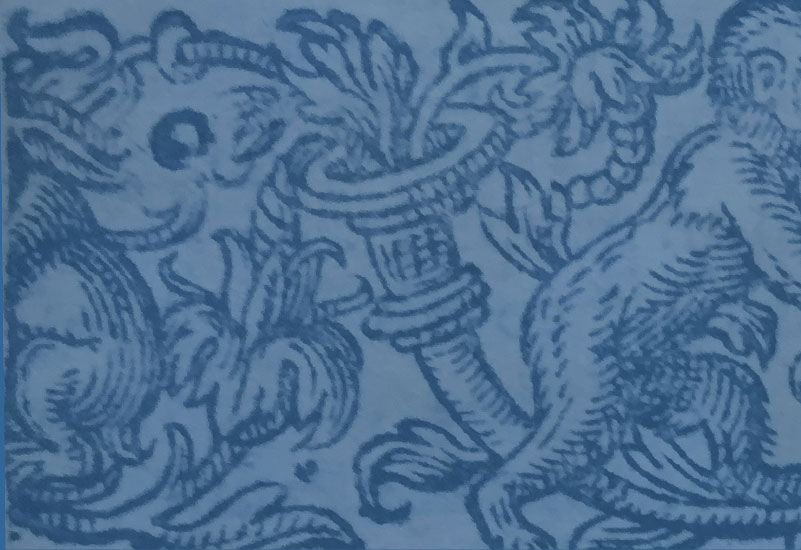Dorothy Day - Catholic Worker Collection
General Information | Dorothy Day Papers | New York Catholic Worker Records |
Other Catholic Workers and Catholic Worker Communities | Audiovisual Holdings |
Access and Services | Online Descriptive Inventory |
General Information
The Catholic Worker was founded in New York City in 1933 by Dorothy Day (1897- 1980), a radical journalist who had converted to Catholicism, and Peter Maurin (1877-1949), an itinerant French worker/scholar with a vision of a world "where it is easier to be good." It has evolved into a faith-based, grassroots movement for peace and social justice through nonviolent direct action, represented by more than 150 loosely affiliated "houses of hospitality" (including several in Australia, Canada, Europe, Mexico, and New Zealand) in which the poor and homeless are welcomed as guests rather than as "clients." The Catholic Worker newspaper, edited by Dorothy Day from 1933 until her death in 1980 and still published seven times a year by the New York community, remains the best known of numerous CW publications. (It is now online; click here.) Widely regarded as the most influential lay person in the history of American Catholicism, Day was proposed for sainthood by the Claretian Missionaries in 1983. The Vatican granted the Archdiocese of New York permission to open her "cause" in March of 2000.
The Marquette University Archives began to acquire the records of the Catholic Worker movement in 1962. The collection now comprises more than 200 cubic feet, including the personal papers of Dorothy Day, Peter Maurin, and others involved in the movement; records of past and present Catholic Worker communities; photographs; audio and video recordings of interviews, talks,television programs, and peace demonstrations; and a wide variety of publications. Although access to materials of a confidential nature has been restricted at the donors' request, most records are open to research use.
Dorothy Day Papers
The papers of Dorothy Day contain her correspondence (largely incoming) with family members, friends, and associates; appointment calendars and notebooks; diaries* and retreat notes; manuscripts of articles and books; correspondence and press accounts concerning speaking engagements and other public activities; articles she wrote for non-Catholic Worker publications; and writings about her. Notable correspondents include Daniel and Philip Berrigan, Catherine de Hueck Doherty, Eileen Egan, James Forest, Ammon Hennacy, Thomas Merton, and Gordon Zahn.
*The Duty of Delight: The Diaries of Dorothy Day, edited by Robert Ellsberg, was published in April 2008 by the Marquette University Press.
New York Catholic Worker Records
Included in the records of the New York Catholic Worker community are the back files of The Catholic Worker and other publications; letters to the editor and other general correspondence; manuscripts submitted to The Catholic Worker, with related correspondence; financial and legal records; correspondence and published information documenting the NYCW's involvement in the labor and peace movements and its ties to related communities and organizations; and records of the houses of hospitality and farms maintained by the NYCW in and near New York City.
Other Catholic Workers and Catholic Worker Communities
The surviving papers of Peter Maurin, including manuscripts and scattered correspondence, form another part of the collection. Other past and present members of the movement whose papers are held include Johnny Baranski, Charles Butterworth, Frank Cordaro, Frank Donovan, Thomas Cornell, Jeff Dietrich, Dorothy and William Gauchat, Gerald Griffin, Ammon Hennacy, Michael Kirwan, Nina Polcyn Moore, Deane Mowrer, Tina Sipula, Brian Terrell, Jacques Travers, and Stanley Vishnewski. In addition to the New York CW, Catholic Worker communities in Alderson, West Virginia; Bloomington, Illinois; Chicago, Illinois; Des Moines, Iowa; Houston, Texas; Los Angeles, California; Milwaukee, Wisconsin; St. Louis, Missouri; Syracuse, New York; and Washington, DC, have made substantial donations of archival material. Most of the other CW communities in existence at present send their publications to the Archives, or post them online, and information is available on many of the former houses as well.
Secondary and Audiovisual Holdings
Growing collections of photographs and sound and video recordings are among the most heavily used materials in the Catholic Worker Archives. The department holds approximately 300 audio recordings of oral history interviews with CW volunteers and others associated with the movement (transcripts exist for most interviews), and more than 700 audio recordings of discussions, talks, and radio and television programs. Most of the audio recordings have been digitized; they are available for download upon request. There are also video recordings of talks, television programs, and peace demonstrations. Other series consist of writings pertaining to the CW movement, including books, dissertations, and articles.
Access and Services
Marquette welcomes public use of its collections. However, for optimum service, patrons are invited to consult with the archivist before their first use of Marquette materials and thereafter as needed. All original items must be used in the department's reading room whereas most microfilm and many publications and recordings may be borrowed through interlibrary loan. To insure the immediate availability of materials and audiovisual equipment, appointments are advised for all on-site research. Restricted materials are subject to special regulations and are not available through interlibrary loan.
Services hours are Monday through Friday, 8:00 a.m. to 4:30 p.m. Visitors seeking more information about access to the Raynor Library may consult the visitors page.
For further information contact:
William Fliss, Archivist
PHONE: (414) 288-5906
William.Fliss@marquette.edu
ALL VISITORS AND RESEARCHERS ARE WELCOME BY APPOINTMENT.






